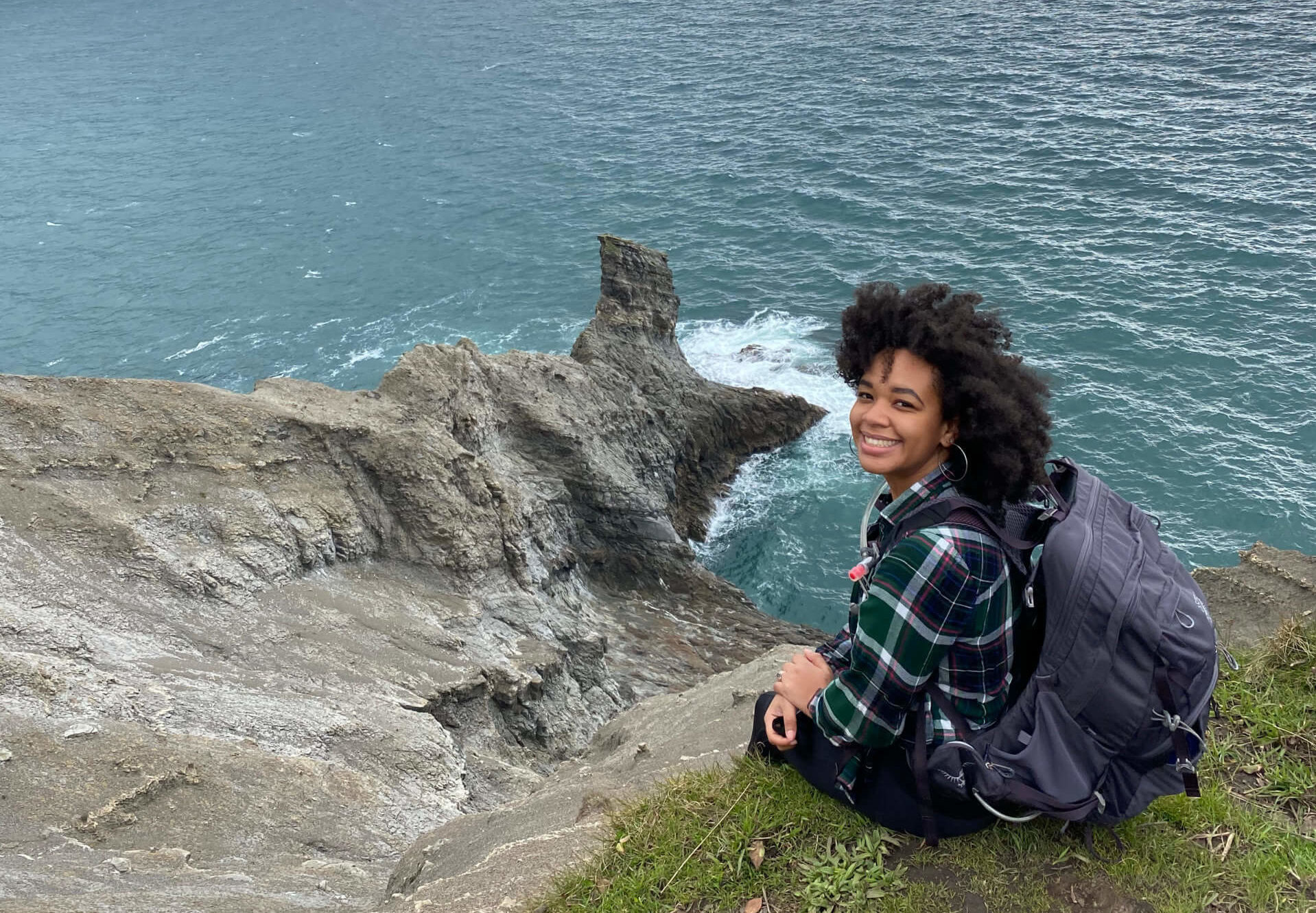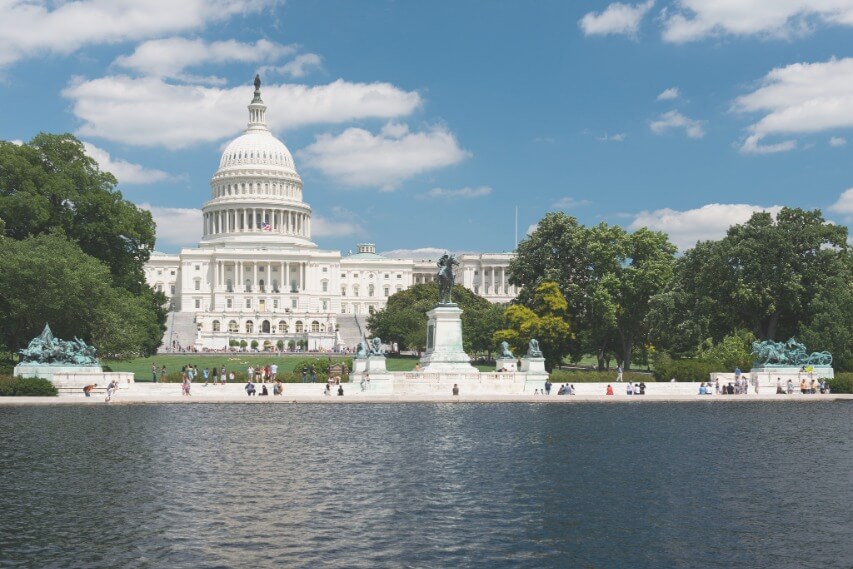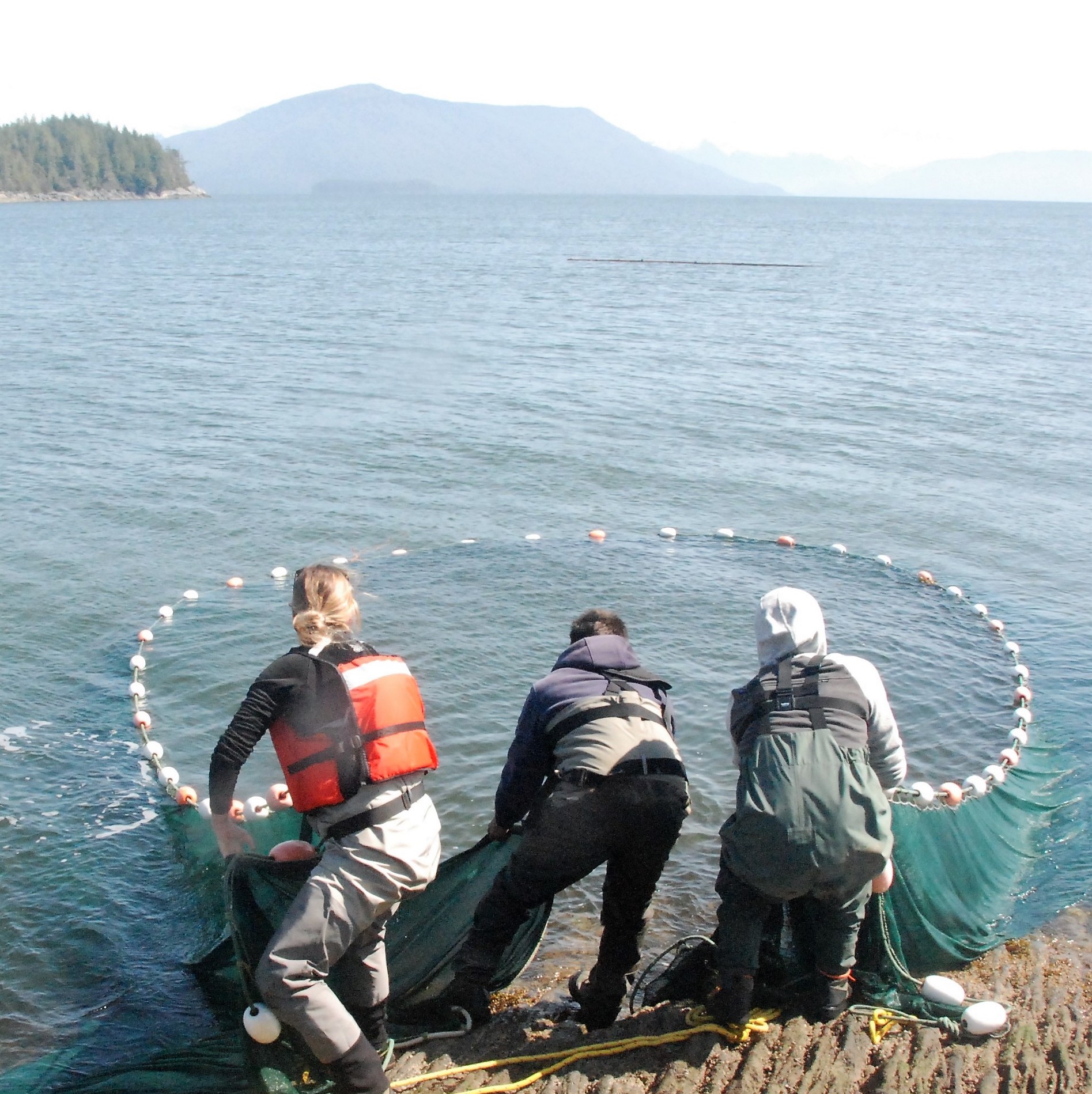COMPASS’s Regional Engagement Fellow, Victoria Moreno, shares her experience working on the Oregon Marine Reserves workshop series.
Tell us about the Oregon Marine Reserves and COMPASS’s workshop series surrounding the reserve process.
From 2008 to 2016, Oregon designed and implemented five marine reserves throughout the state’s coast to protect marine habitats and biodiversity. Marine reserves are a specific type of protected marine area. These are “no-take” areas, so fishing and other economic activities are not allowed. They are designated for conservation and research purposes only.
Now, Oregon’s Department of Fish and Wildlife is in the process of preparing to present a report on the marine reserves to state legislators in 2023. Over the next year, there’s going to be more attention paid to the marine reserves as the Oregon Legislature prepares to evaluate the reserves program at large. To leverage the policy window being created by the review process, COMPASS has brought together key scientists and advocates who have deep knowledge of Oregon marine reserves or relevant fields and can help advance the dialogue around the reserve system. Our goal is to help this group communicate effectively with communities, media, and legislators.
If goals and research focuses are not communicated effectively at an individual or collective level, stakeholders could be pulled in various directions. I’m excited to see these critical leaders form a more cohesive message so decision-makers and other relevant stakeholders can see that there’s more unity than not.
Who are the scientists and advocates that you’re working with, and what are their goals?
The group comprises researchers and conservationists who work in various aspects of ocean science and conservation relevant to marine reserves. The scientists’ areas of focus range from pollutants and contaminants to fishers’ perspectives to fish populations. They represent academic institutions like Oregon State University and Portland State and NGOs like Portland Audubon and TNC. Their goals for being involved in the workshop are really centered around three areas: learning from others, highlighting their work, and building a network.
As a fellow, what are you hoping to learn from working with the Oregon marine reserves workshop series?
Personally, I know I want to work in an interplay of interdisciplinary research. I appreciate the group because they have diverse disciplines and experiences, including natural scientists, social scientists, and people from the nonprofit world.
Another goal of mine is to translate science effectively between scientists and policymakers, and communities. That’s a big part of what we’re preparing these scientists to do. I’m excited to learn the tools and use these processes in my overarching goals for the future.
As I am finishing up my Master’s degree in Public Policy at Oregon State University, assisting scientists in translating science effectively between themselves and policymakers has been very rewarding and insightful to me as a scientist. My thesis goal was to understand and assess the factors that affect Oregon’s Dungeness crab industry’s adaptive capacity to ocean acidification and other environmental stressors, in order to inform policy that supports coastal communities reliant on the crab industry. Working on the marine reserves workshop series has allowed me to effectively translate my research findings to others and contribute to conversations about Oregon marine reserves.
What is something that has surprised you?
I was pleasantly surprised by how intentional the scientists are in thinking about their work and communicating with others outside their field. In academia, there’s this perception that scientists don’t consider multiple perspectives, whether natural scientists do not consider perspectives from social scientists or vice versa. But this group is very open-minded and wants to be aware of all perspectives – especially around DEIJ, like uplifting the voices of tribal representatives and other underrepresented and oppressed communities. It’s been fascinating to see that desire to learn and engage. I love seeing that come out through conversations.
And what is something that excites you about the future of the program?
I’m looking forward to the next steps. Initially, we focused mainly on communication, but we’ve quickly moved into the policy dimension. I’m excited to get more finite goals from group members around how they want to work together and what materials they want to produce, whether it’s one-pagers or podcasts or building a network. I’m also excited to see the participants use the tools COMPASS provided to engage with policymakers more in the upcoming year.
Also, while this program focuses specifically on Oregon marine reserves, the work is pretty expansive. Marine reserves in Oregon are used as an adaptive management tool, which could extend throughout the West coast. Such practices and strategies could lead to similar efforts being done on a larger scale, similar to the marine protected areas, which expand to the federal and national realm. I’m excited to see how the marine reserves program can connect to other state and regional efforts.



